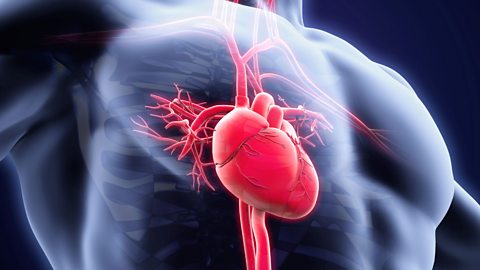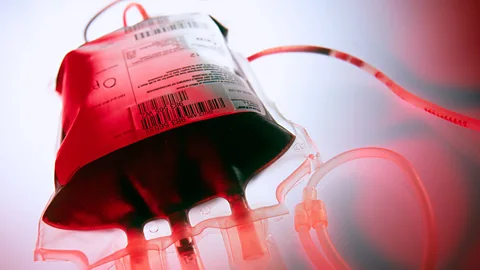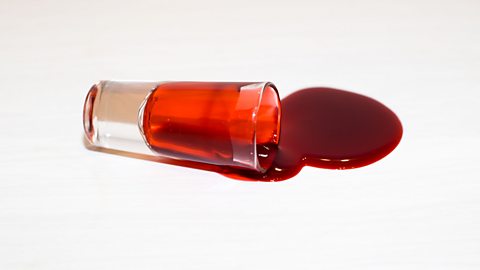The incredible things we know about your heart and blood

 iStock
iStockYour brain might stake a claim to be the most complex object in the Universe, but your heart and blood are pretty fascinating too. William Park rounds up some intriguing facts.
Your heart pumps a lot of blood
Your heart is an incredibly hardworking organ. In five minutes, it will pump five litres of blood around your body. After an hour, it will have pumped 300 litres in 4,200 heartbeats.
In the course of one year it will have pumped enough blood to fill an Olympic swimming pool – that’s 2.5 million litres – in 38.5 million heartbeats. Check out more facts in BBC iWonder’s animation below:
Heartbeats can control your behaviour
We might talk about ‘following our heart’ when trying to make a difficult decision. But did you know that there might be literal truth in this cliche? The beat of our heart contributes towards our feelings of intuition – from feelings of pain, empathy towards another and the suspicion that a spouse might be cheating on you.
Agustin Ibanez, of Favaloro University in Buenos Aires, was given a unique opportunity to test this when he met a man with two hearts. Carlos (not his real name) had been fitted with a second, mechanical, heart which sits lower in his chest – just above his naval. The resulting effect of the implant is that Carlos has the feeling that his heart has dropped into his abdomen – with mind-bending effects.
Read David Robson’s in-depth profile of Carlos and his second heart: The man with two hearts
Scientists have found a way for people to live without blood
What happens when our heart stops? It might be possible to bring the dead back to life from a point of suspended animation, with no heartbeat or brain activity. In surgery, a radical new procedure that involves replacing a patient’s blood with saline solution could prolong life.
The experimental work looks to blur the line between life and death. The patient’s body is chilled to around 10-15C. Because the body’s metabolism has now stopped, blood is not required to deliver oxygen to cells, and replacing the blood with cold salt water is the best way to maintain an overall low body temperature.
Read more about how we could cheat the big sleep: The man who brings the dead back to life

We still don’t know why we have blood types
One of the biggest mysteries about our circulatory system has remained unsolved for more than a century. We still don’t really know why we have blood types. We know what they are: different blood types can be defined by the different molecules on the surface of red blood cells. These are important because enzymes in our bodies need to be able to recognise red blood cells using these molecules. Hence why blood transfusions can only work with blood of the same type – a different type would be unrecognisable.
But why have different types? Why not have one universal blood cell make-up?
Read more from Carl Zimmer about the mysteries of our blood here: Why do we have blood types?
We may one day live with a synthetic heart… or one from a pig
Xenotransplantation – using animal tissues in humans – dates back to at least 1682, when Dutch surgeon Job Janszoon van Meekeren reported that a Russian soldier’s skull had been repaired with a fragment of bone from a dog.
Now researchers are exploring whether the hearts of other animals like pigs could save people’s lives.
Others, meanwhile, are looking at growing human hearts from scratch using tissue engineering.
 Olivia Howitt
Olivia HowittThere are no benefits to drinking blood… but some people do it anyway
Perhaps the most sensational use for blood is as a treatment for a whole range of medical complaints, best taken fresh, and orally. A small community of human blood drinkers self-medicate with shots of the red stuff, kindly donated – for free – by willing volunteers.
Called ‘medical sanguinarians’, these people claim that a regular dose of human blood can alleviate various medical conditions; from headaches and fatigue to severe stomach pains that otherwise cannot effectively be treated.
Drinking blood almost certainly has no medical benefits; the medical sanguinarians probably feel better as a result of the placebo effect. But the fact that they feel better at all shows the powerful effects ritual blood-drinking has on the mind.
Read more: The people who drink human blood
--
William Park is @williamhpark on Twitter
Join 600,000+ Future fans by liking us on Facebook, or follow us on Twitter, Google+, LinkedIn and Instagram.
If you liked this story, sign up for the weekly bbc.com features newsletter, called “If You Only Read 6 Things This Week”. A handpicked selection of stories from BBC Future, Earth, Culture, Capital, Travel and Autos, delivered to your inbox every Friday.
